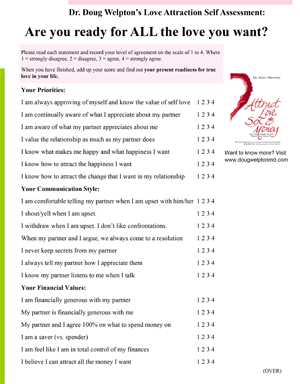“Govern a big country as you would fry small fish” (they become paste with constant turning) —- Lao Tzu
And so it was that for many months King Theo visited each month with Lydan, telling him first about the problems of his kingdom, then about his troubles with his counselors and the Court, and finally about his difficulties with the queen and his family. When the king ran out of things to say Lydan encouraged him to pray and taught him the art of daily meditation. Even though he enjoyed looking at the sights from the top of the mountain it was difficult for King Theo to endure the silences, for they made him feel like he was wasting time. He reminded himself of how painful a journey he had made, only to find himself sitting silently with the sage.
When the king complained of wasting time, Lydan attempted to comfort him. “The road to peace is difficult,” he said, “as is the way to self-fulfil¬lment. We can find it only through unburdening ourselves rather than taking on more, through stillness rather than through activities, through developing patience rather than racing against time, and through letting go of hopes rather than generating new ones.”
King Theo found himself perplexed. He complained to the sage: “I do not understand. I came here with great ambitions to fulfill myself as a king, and with great hopes to improve my kingdom by ridding it of all evils. I hoped to make my people share their wealth, so that they would respect one another as equals and care for others, not just for themselves and their profits. Now you tell me I should give up my hopes, and stop my rush to accomplish my ambitions, and I am confused how your advice will help me.”
Lydan all too painfully understood the confusion of the king, for he had known many times the difficulty of explaining to men those truths they find almost beyond comprehension. He took a deep breath as he spoke to the king: “I am sorry I have confused you, for that was not my intent. I must admit, in all honesty, that what you have said likewise confuses me. If equality and humanity are invisible things,” he asked, “how can you hope to accomplish them by visible means? How is it possible to enforce humanity and equality on people, when these are feelings within people that cannot be legislated or enforced? When you force people through laws and taxes to practice equality, for example, that is not true equality, but only its superficial appearance. When you sacrifice freedom for material equality what have you gained? And how can anyone make people care, as in caring for others, when the idea of coercing care is a contradiction?” He looked at King Theo as he asked: “If your people have nothing more to care for than profits and possessions, is that not a symptom of their poverty which inflicts its own punishment?”
King Theo experienced the ring of truth in the sage’s words, although he did not like their implications. “What about my hopes and great ambitions,” he protested, “what is going to happen to them?”
“Is it our hopes and ambitions that make things happen,” responded Lydan, “or do they happen when we align ourselves with universal laws? Like the law that says we reap what we sow. Or another law that says what you believe in your heart is what you bring into your life.”
At this point the king grew exasperated, and decided to confront Lydan with his hardest questions. “If you do not live for hopes and ambitions¬,” he asked the sage forthrightly, “what do you live for? If you do not wish to rid the world of evil, and to do what is right, what sustains you? It is obvious that you do not cherish material possessions, and yet you appear content.”
The sage gazed toward the mountains for a moment before he looked at King Theo as he replied, “If you live for hopes, you live for tomorrow, but not for today. As for me, I do my best to live for now, which means I must accept all that is, both good and evil, even though I prefer what I consider good.” His eyes engaged King Theo’s. “If you are going to work for change,” he continued, “you must first accept what is, which is the greatest change of all! I am content when I accept life as it is, which means that I must continually grieve and absorb and expand inwardly to digest life’s disappointments, if I wish to replace wrong with right, or hate with love.”
The sage’s voice grew deep and solemn, and his eyes took on a brilliant glow, causing King Theo to tremble as he listened. “As to what it is I live for,” Lydan continued, “there is one thing that surpasses all else, and yet I hardly know what to call it, much less how to explain it. For want of better terms I call it the life of the Holy Spirit. It is the understanding that transcends words and explanations, the golden light that may enter into a man’s life and elevate him somewhere between heaven and earth, giving him vision where before he had just sight.”
“You are describing what I have been seeking all my life,” responded King Theo. “How do I find it?”
If you want to learn how Lydan helps King Theo with his spiritual journey part 3 will be posted next week on my website: https://adviceinloverelationship.com.


